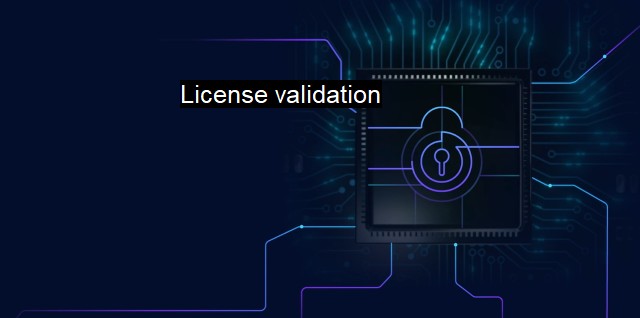What is License validation?
The Importance of License Validation in Cybersecurity and Antivirus Software: Ensuring Legitimacy and Protection Against Cyber Threats
License validation in the context of cybersecurity and antivirus essentially refers to the process of checking and confirming that the software license being used by an individual or an organization is both genuine and current, thus ensuring usage compliance. This process is also designed to confirm that the software being used is not a malicious imitation, counterfeit or unlicensed.With the continual rise and sophistication of malicious cybersecurity threats, the importance of license validation has evolved tremendously. Cybersecurity is no longer purely about blocking viruses or preventing unauthorized access but protecting commercial interests and intellectual property rights of software developers as well. This is where license validation becomes extremely crucial—it is an integral part of both maintaining cybersecurity protocols as well as preserving the commercial viability of the software in use.
In the world of antivirus software and cybersecurity solutions, license validation begins when a valid license key is entered upon installing the software. This unique sequence of numbers and letters generally provided by the software vendor is accurately checked by the validation system to ensure its validity and verify user's access to the specified software's entitlements, namely receiving updates, service and support.
Creating systems for license validation serves several key functions in cybersecurity. Principally, it secures against fraudulent licenses and unauthorized use of software that can pave a pathway for malware, phishing attacks, or other discernible damage to a system's security. Software with invalid licenses may not receive essential security updates and patches, leaving the system vulnerable to new threats and exploits.
It aids software developers and vendors by administering appropriate compensation for their creations and inventions ensuring their revenues are not undermined by unauthorized users. One cannot negate the possibility that pirated software may come bundled with hidden malware that could jeopardize the security of systems where they are installed. Thus, ensuring the use of a valid license becomes doubly vital.
Implementing a license validation process creates an affidavit of accountability securities, ensuring only authorized users with a genuine, valid license can access the software and receive updates, services, and support. Several techniques are used in the validation process. Some systems use online license validation which connects to validation servers over the internet. Other systems may use offline methods like generating a fingerprint of the system where the software is installed and validation it against the key.
License validation systems can effectively become cyberattack prevention mechanisms as well. Whenever the software or application is launched on the system, license validation checks are performed. This can secure against any unauthorized modifications to the software, which could prove to be a potential attack vector for hackers.
Cybersecurity threats today are not only confined to viruses and malware but have taken an shape of intellectual property theft, piracy, and misuse of software applications and tools. These emerging threats necessitate the criticality of license validation as an integral part of comprehensive cybersecurity protocols.
Cybersecurity and antivirus scenarios of the modern digital realm claim a heavy reliance on solid license validation systems. Serving as a defense against unapproved and unauthorized usage of software, it ensures that only users who are legally entitled can access and utilize the software. license validation remains an essential way in which antivirus and other cybersecurity software maintain their resolute effectiveness over time, preventing any unwanted security risks posed by software that is outdated, or fails to receive critical updates or enhancements. Consequently, the importance of license validation in promoting cybersecurity and antivirus effectiveness cannot be overstated— annual renewal heeds continuous security, genuine business practices and enhances customer trust abide.

License validation FAQs
What is license validation in cybersecurity and antivirus software?
License validation in cybersecurity and antivirus software refers to the process of verifying whether the software being used is licensed or not. It helps in preventing malicious users from accessing the software without paying for it, which ensures the protection of the software and its users.What happens if license validation fails?
If license validation fails, the software may stop working, or it may work with limited functionality. The user will be prompted to provide valid licensing information or purchase a new license. In some cases, failing license validation can also lead to legal consequences for the user.How frequently should license validation be performed?
License validation should be performed regularly, ideally every time the software is used or updated. This is to ensure that the software remains licensed and up-to-date, reducing the risk of vulnerabilities and ensuring optimal performance.Can license validation be bypassed or hacked?
Bypassing or hacking license validation is illegal and can result in severe penalties. In addition, most software vendors use advanced techniques to secure their licensing systems and prevent unauthorized access. Attempting to bypass validation can also compromise the security of the software and the user's data. It is strongly advised to obtain valid licenses for any software being used.| | A | | | B | | | C | | | D | | | E | | | F | | | G | | | H | | | I | | | J | | | K | | | L | | | M | |
| | N | | | O | | | P | | | Q | | | R | | | S | | | T | | | U | | | V | | | W | | | X | | | Y | | | Z | |
| | 1 | | | 2 | | | 3 | | | 4 | | | 7 | | | 8 | | |||||||